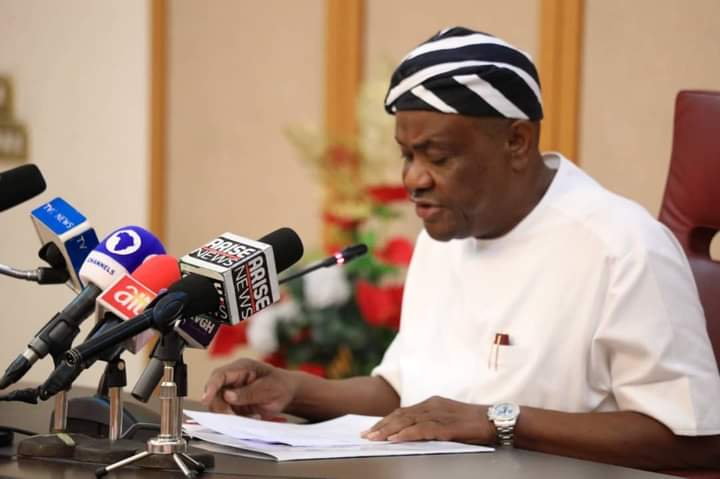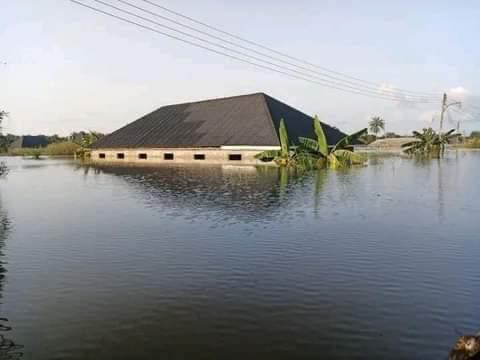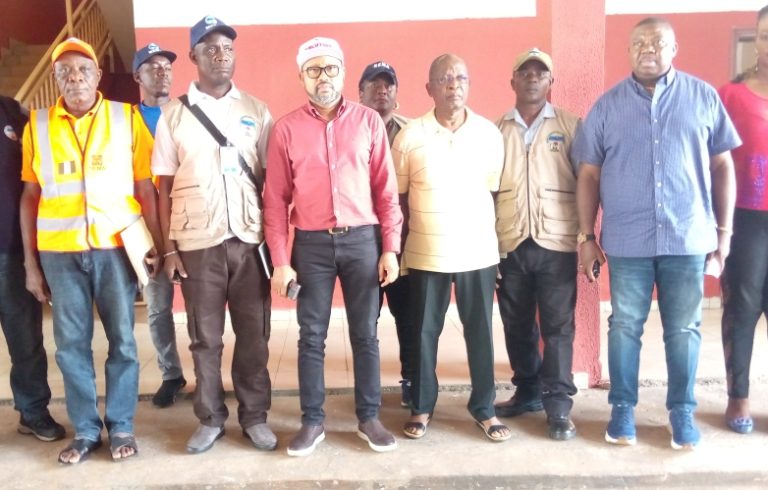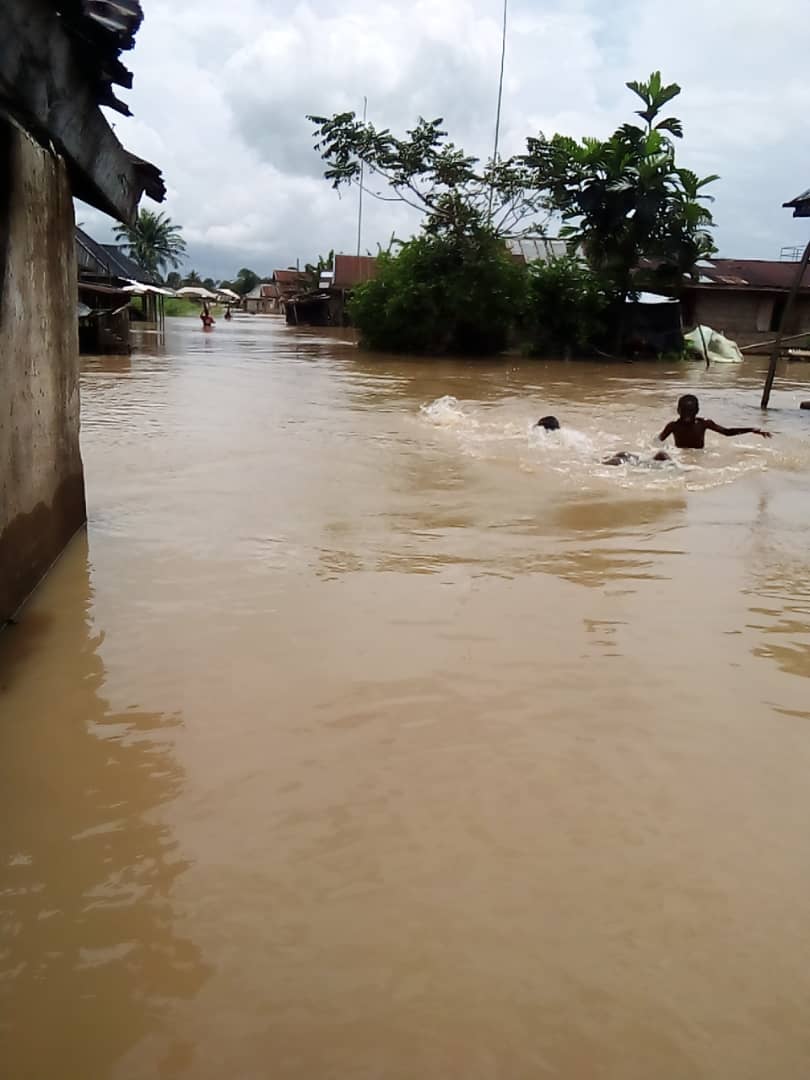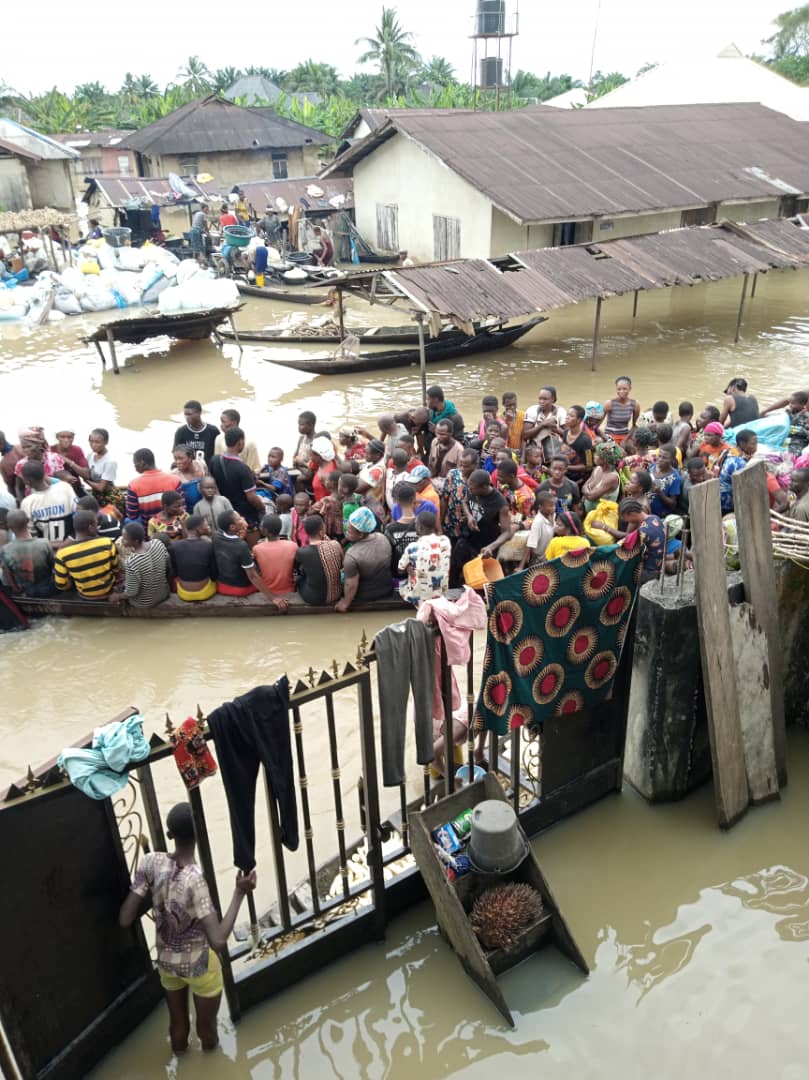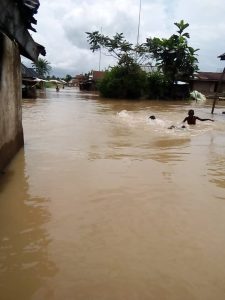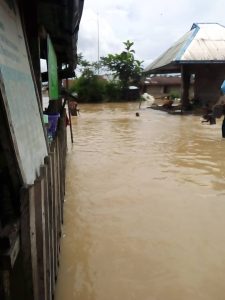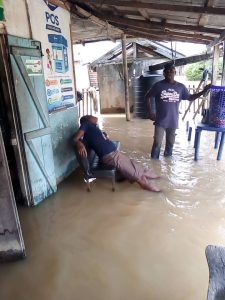… Kogi, Delta, Benue, Kaduna, Rivers others going under
…how NiMet had warned affected states since first week of September
… insists heavy flood is signal of climate change
The flood ravaging Nigeria in the last two weeks simply point to the fact that Nigeria is fast going under if nothing is done urgently to check it.
In this analysis, TheNewsGuru.com, (TNG) is going to take a look at the last three years how flood has become a nightmare to Nigerians.
Between 2019 and 2021 it has become a recurring decimal as Nigerians battle flood once the rains start particularly with states warehousing the River Niger.
The year 2012 was most catastrophic and the lame excuse given by government agencies was that other countries harbouring River Niger opened their dams and Nigeria being the last host country had to bear the brunt.
2022 is almost going the way of 2012 which is a wide space of a decade yet nothing was done about dredging the Niger which is one of the major symbols of Nigeria.
In 2019 a top federal civil servant, Tony Okecheme, was swept away by heavy flood in in the Lokogoma axis of Abuja. It was widely reported because a top civil servant was involved what about the poor ones residing in Gwagalada, Kubwa, Kuje that were swept away without reportage.
Just last year September, just like the case of Okecheme, another top DSS intelligence officer was swept away by flood with his car.
In 2020 it’s still same old story as two top intelligence officers were swept off and killed by flood.
They’re numerous not to talk about the many communities in the middle belt and the Niger Delta that flood has relocated from their ancestral homes.
Going by the statistics released by NEMA on Thursday the Nigerian government should think twice on the way forward to checkmate flood before it becomes another Boko Haram killing people without mercy.
In the statistics made available by the relief government agency, 33 States out of the 36 States of the Federation were massively affected by this year’s flood.
Statistics:
33 States Affected, Over 500 Deaths, 350,000 Persons Displaced – NEMA
FG approves 12,000 metric tonnes of assorted food commodities from the National Strategic Reserve
NEMA delivers relief materials to 36 states, FCT.
In an event the NEMA DG gave a breakdown:
Hear the DG of NEMA and others:
The Director General of NEMA, Mustapha Habib Ahmed, stated this in a media interview at the 2022 International Day for Disaster Risk Reduction event organized by NEMA in Abuja, with the theme: “Early Warning and Early Action For All”.
Ahmed also said that the agency has commenced delivery of relief materials to provide succor to persons affected by flood across the 36 states of the federation, including the Federal Capital Territory (FCT).
He further revealed that President Muhammadu Buhari has also approved the release of 12,000 metric ton of assorted food commodities from the National Strategic Reserve for NEMA to distribute across the states to vulnerable Nigerians.
He said: “The President has graciously approved 12,000 metric tonnes of grains that is equivalent of 400 trailers which has been spread across the country and we are still working on providing relief materials, food items and non food items to each state of the Federation and relief items have gone to all the States, we have some hiccups along the way in Lokoja, we alerted the DSS, IG of Police to help us in clearing the way so that relief items will continue to get to all relevant States”.
He assured that the relief delivery will soon be completed to all other states by this weekend as efforts have been made to address some challenges encountered in movement of the items due to condition of the roads that were covered by flood.
Reviewing the on-going flood situation in the country, Ahmed acknowledged that NEMA and its partners were grappling with “the large scale flood disaster across the country which more than 500 lives have been lost, several property destroyed and a large number of persons displaced in some of the disaster hotspots.
The Minister of Humanitarian Affairs, Disaster Management and Social Development, Sadiya Umar Farouq, said all efforts must be made to address the challenges of flood situation in the country.
The Minister who was represented by Director Disaster Management, Ali Grema, said of the present flood situation that “as a matter of fact, the scale of devastation can only be compared to the 2012 floods. More than 500 lives have been lost, more than 1.4million persons affected, about 90,000 homes either partially or completely destroyed; and still counting. And also destroyed are thousands of hectares of farmland; thus, worsening fears of a disruption of food supply in Africa’s most populous country. These widespread cases are in 27 out of 36 States and the FCT.”
“As we reflect on the present flood situation in Nigeria, let’s consider the focus of the 2022 IDDRR. Did we not have enough warnings or was our predictions and flood outlook wrong? Did we not act enough to prevent or mitigate what we’re confronted with today?”
“While we shall not apportion blames, we need to acknowledge the fact that we all had enough warning and our advocacy was timely. However, communities must recognize that ‘All Disaster Are Local’ and they must take climate predictions and flood outlooks warnings seriously. We can’t out rightly eliminate flood but we can keep people safe. That responsibility is collectively ours”.
According to her, the Ministry, with relevant stakeholders were working on implementation of the National Flood Emergency Preparedness and Response Plan that was recently approved by the Federal Executive Council.
“The plan stipulates specific roles and actions for all (including National, State and Local Governments as well as households, communities and pressure groups). The Ministry considers the importance of preventing deaths and loss of lives in a disaster that is predicted and occurs every year”, Farouqe added.
Director General, Federal Road Maintenance Agency, (FERMA), Abbas Idris, said no one is to be blamed but early warning is an issue of education and enlightenment.
“Nigeria is just coming up to join the league of nations whereby early warning really works well. The issue we are having in Nigeria is that when you are giving early warning to the residents or to the populace, they seem to be knowing much more than you, because we believe in some cultural and religious aspects that doesn’t allow us to take early warning.
And I always say, early warning come from a learned people and learning is from God, knowledge is from God. So therefore we should adhere strictly and imbibe the culture of accepting the Early warning.
‘If for instance you are going this way and we told you there is an accident that blocked the way, you will try to deviate from going there. So why is it that when the learned people say it’s going to rain and it is going to cause flooding and they need you to evacuate, you will now say you will not evacuate? So you can see there is contradiction in our beliefs and in our culture, unless we change this we cannot get it right”, he said.
He also said that the agency has been authorized to remove illegal structures obstructing free flow of water.
“Like I told you, we have the political will to remove a structures that are obstructing free flow of water. If you know any, no matter how big the estate is let us know, help us and share information with us and we will definitely go and remove it.
“So this is what we are doing, we are educating the public and we are also doing the needful, we cannot ask you to go and remove your own structure. And do you know, of we remove your structure we can also charge you for that and then prosecute you. So the law is there and we are not afraid to enforce the law for the safety of lives and the property of the FCT Residents.
“We are on our way to prosecuting offenders”.
Well said, but NiMet has a contrary view when it declared that the major issue confronting Nigeria is that of climate change.
The agency insisted that it’s just rain that’s causing the havoc and the effects of climate change not because other host countries of River Niger opened their dams.
The agency had in the first week of September this year warned most affected states to prepare for heavy flood. But as usual state governments turned dead ears.
Hear NiMet:
States at a high risk of flooding include Kebbi and Jigawa in the northwest, Borno Bauchi and Taraba in the northeast, Plateau in the north-central and Bayelsa in the south-south.
Other states that may experience flash floods include Kano, Adamawa, Rivers, Akwa Ibom, Cross River, Abia, Imo, Enugu, Lagos, Ogun, Osun, Ondo, Oyo and Ekiti.
“The saturated state of the soil moisture across the country in July and heavy rainfall recorded in August may make most places experience varying degrees of flooding, ranging from high, medium, low and flash floods in September.
“Sokoto, Zamfara, Kaduna, Jigawa, Bauchi, Kano, Borno, Gombe and Nasarawa states recorded over 300mm, which represents over 40 per cent of long-term, normal rainfall for those places in one month. Places around the southwestern part of the country, however, recorded less than 200mm as a result of the long dry spell associated with ‘August Break’ in those areas.
“It further stated that places with major river channels may experience probable high risk of flood events due to accumulation of water already on the river channels which may not be able to contain any additional water.”
NiMet advised state emergency management agencies to intensify adaptative, mitigative and response mechanisms while states expected to experience degrees of flood episodes were advised to begin their awareness campaigns through field extension workers for possible flood activities within September, especially in high-risk areas.
State governments never heeded to this warning and the effects of the flood is devastating in some states like Rivers and Delta that were not mentioned.
NiMet had also warned that until on Sunday of next week the flood ravaging most of the states will continue.
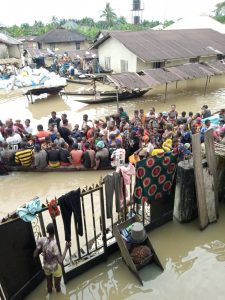
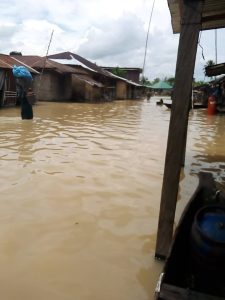

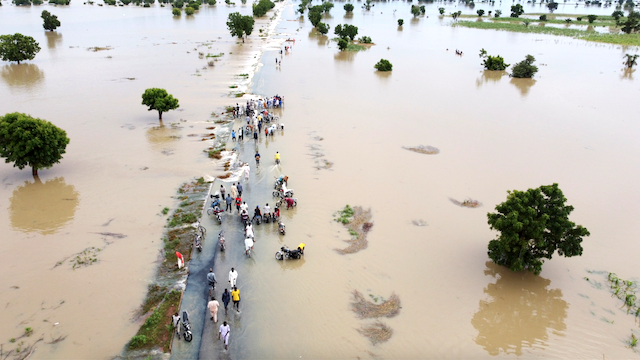

![CAN President’s home taken over by flood [VIDEO]](https://thenewsguru.ng/wp-content/uploads/2022/07/Screenshot-2022-07-26-at-4.51.48-PM.png)
